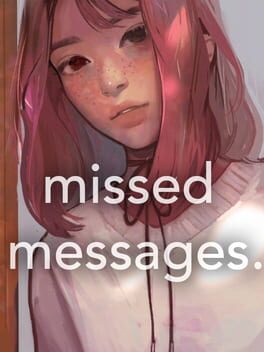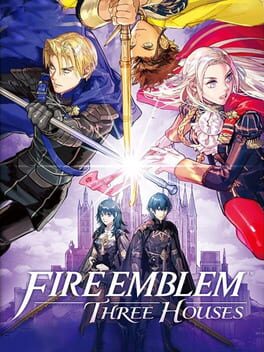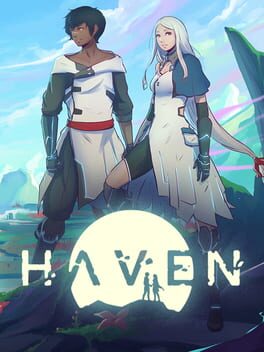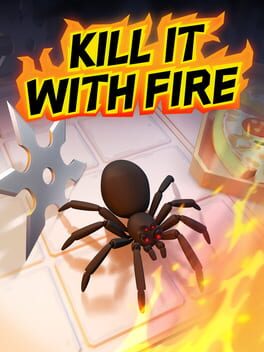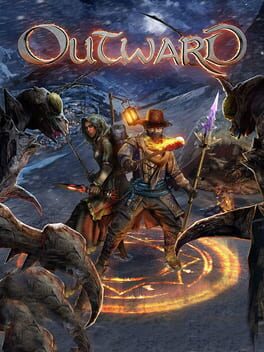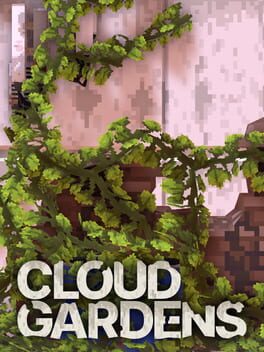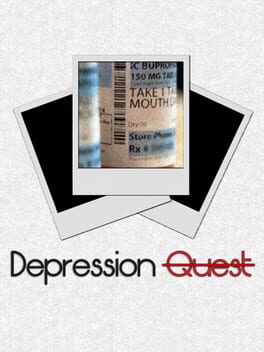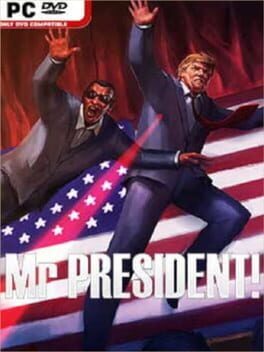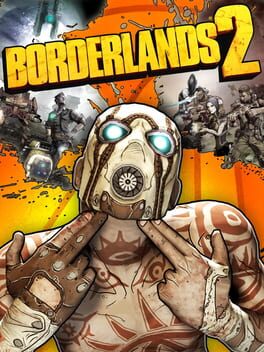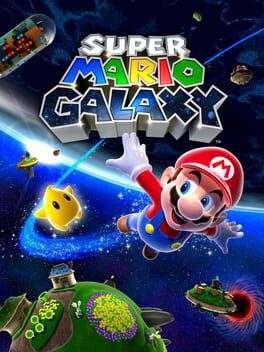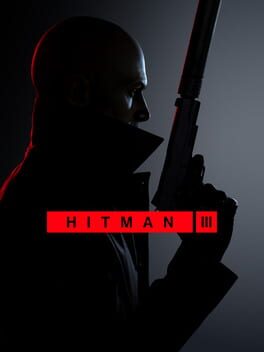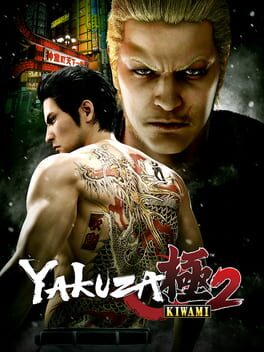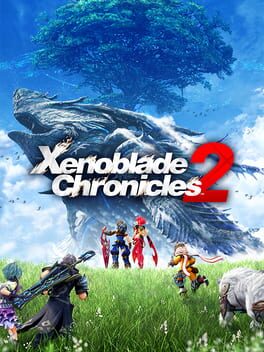jobosno
BACKER
2019
The "big twist" that you'll likely run into the first playthrough is decidedly unsubtle, but your next playthroughs are where the substance really is in this experience. It is a short story, but the ability to experience it in game form and say "no, what if things were different" is where it shines.
Once I started exploring subsequent playthroughs and tried to get the best ending I found myself relating a lot to some characters (and very little to some others). I think I'm a tad fonder of the experience because I'm able to relate, and it's personal enough that I can't really say how that would differ if this experience is totally alien to you. I also think the game's quality suffers a bit due to its brevity, as getting the most common ending and seeing that you "missed messages" makes it extremely obvious where those missed messages were. I also think there's potential for some people to be put off by the very quirky dialogue, but the game is free and short, so it's worth a shot.
Once I started exploring subsequent playthroughs and tried to get the best ending I found myself relating a lot to some characters (and very little to some others). I think I'm a tad fonder of the experience because I'm able to relate, and it's personal enough that I can't really say how that would differ if this experience is totally alien to you. I also think the game's quality suffers a bit due to its brevity, as getting the most common ending and seeing that you "missed messages" makes it extremely obvious where those missed messages were. I also think there's potential for some people to be put off by the very quirky dialogue, but the game is free and short, so it's worth a shot.
It's very easy to get lost in this game - there's lots to do and other than battles, everything takes about 30 seconds, so it's easy to get lost in the checklist. Due to the amount that you're "accomplishing" with such speed it's easy to forget that no individual task is really that satisfying and that your progress is mostly incremental. If you're playing strictly for the strategy elements, you're going to have a bad time - this is an otome game with the trappings of a strategy game.
This isn't to say I'm not enjoying myself - I've found myself surprised by how quickly time is flying by when I'm playing - but I'm able to recognize it as a turn-your-brain-off kind of fun. I'm not thinking that hard, I'm not doing anything mechanically intense - I'm talking to characters that are seemingly written specifically to avoid having a second personality trait.
Ultimately, regardless of how fun this game ends up being when I complete it, Nintendo wins. Not only do they have my money, but they have tricked me in to caring deeply about at least 2 of these one-note characters. If anything happens to Marianne I'm airmailing my Switch across the street.
This isn't to say I'm not enjoying myself - I've found myself surprised by how quickly time is flying by when I'm playing - but I'm able to recognize it as a turn-your-brain-off kind of fun. I'm not thinking that hard, I'm not doing anything mechanically intense - I'm talking to characters that are seemingly written specifically to avoid having a second personality trait.
Ultimately, regardless of how fun this game ends up being when I complete it, Nintendo wins. Not only do they have my money, but they have tricked me in to caring deeply about at least 2 of these one-note characters. If anything happens to Marianne I'm airmailing my Switch across the street.
2020
Yu and Kay are compelling characters at times, but the rest of the game doesn't really do enough to justify its inclusion. I'm not really sure why there's combat in this at all, to be honest with you, and at times it feels like it's a chore that I have to go do before I'm allowed to hear more about the characters. It's not enough to put me off from the game (not yet, anyway), but I would absolutely understand if someone else feels differently.
2020
I played this game start to finish in one sitting, and yet I can't really rate it that highly. The real "content" in this game is unlocking new tools for destroying spiders and the controls are just a teensy bit too clunky to fully enjoy all of them (guns especially feel just a tad too inaccurate). There are a lot of challenges though, for those that want them - there are always enough easy ones that you can pass the level with relatively little effort, but the more involved ones can be quite difficult, especially as the game goes on.
20 USD for this (full price) feels a little bit steep, but the current Winter Sale price of $9 feels like a good deal for what you're getting, assuming you're not a completionist. You can also easily play this while watching youtube videos, as you don't really need any audio cues and there's nothing time-sensitive. This is the kind of thing I look for when I'm buying casual games.
20 USD for this (full price) feels a little bit steep, but the current Winter Sale price of $9 feels like a good deal for what you're getting, assuming you're not a completionist. You can also easily play this while watching youtube videos, as you don't really need any audio cues and there's nothing time-sensitive. This is the kind of thing I look for when I'm buying casual games.
2019
It's been a minute since I was this into the idea of a game, only to bounce off it so hard. While the game puts a lot of effort into its tutorials, I still think inadequate tutorialization is partly to blame here - when I played the game, I was left with an enduring feeling of "okay, what now?" and no easy way to find something that would draw me in and keep me playing. Exploration for exploration's sake is punishing - not in itself a problem - but I'm also not seeing any potentially cool stuff off in the distance when doing so, meaning I don't really have an incentive to go anywhere outside of quests.
The game doesn't need that much in the way of changes to become a good game, but the development cost (time/effort) those changes would require almost certainly wouldn't be worth it. If the devs learn from this I'd be interested to see what they can do in the future with a potential sequel/new IP, as that's probably the smarter option from a business standpoint.
The game doesn't need that much in the way of changes to become a good game, but the development cost (time/effort) those changes would require almost certainly wouldn't be worth it. If the devs learn from this I'd be interested to see what they can do in the future with a potential sequel/new IP, as that's probably the smarter option from a business standpoint.
2010
I wasn't against the changes Bethesda made to the Fallout IP - as much as I liked the old Fallout games, Fallout 3 more closely resembles the kind of games I normally play. Bethesda, though, has a design philosophy where their games tend to center player expression and empowerment over character expression and role-playing. This isn't necessarily wrong, but I find I get less replayability out of games centered on player expression - think Skyrim, where you can see just about everything in a single save and you're rarely locked into any of the choices you've made outside of the civil war storyline. Your actions cannot have hefty consequences because consequences could lock the player out of future quests/interactions.
FNV brings things back towards character expression - the character is more than just a way for the player to interface with game mechanics, they are meant to be a person that you assign traits to and a filter through which you see the world. It's not the pinnacle of this kind of design, but they had 18 months to make a game and they knocked it out of the park with both the quality of writing and player choice.
There are tons of quality-of-life improvements over Fallout 3 here as well, most of which I won't get into because they're not particularly mindblowing, but they do add up to a significant difference in how pleasant it is to play the game. There are things I don't like as well: I think the game would be better off without the karma system and I think the game needs more NPCs that say "fuck you, you said the wrong thing to me and I hate you, so you don't get to do my quest anymore". Both of these are nitpicky though and none of my complaints really amount to glaring issues.
This is one of those games that I would really recommend to anyone - while the shooting won't blow anyone away, it does its job and you can opt out almost entirely by using VATS if you don't want to do that bit.
FNV brings things back towards character expression - the character is more than just a way for the player to interface with game mechanics, they are meant to be a person that you assign traits to and a filter through which you see the world. It's not the pinnacle of this kind of design, but they had 18 months to make a game and they knocked it out of the park with both the quality of writing and player choice.
There are tons of quality-of-life improvements over Fallout 3 here as well, most of which I won't get into because they're not particularly mindblowing, but they do add up to a significant difference in how pleasant it is to play the game. There are things I don't like as well: I think the game would be better off without the karma system and I think the game needs more NPCs that say "fuck you, you said the wrong thing to me and I hate you, so you don't get to do my quest anymore". Both of these are nitpicky though and none of my complaints really amount to glaring issues.
This is one of those games that I would really recommend to anyone - while the shooting won't blow anyone away, it does its job and you can opt out almost entirely by using VATS if you don't want to do that bit.
2020
It's hardly a game in the traditional sense - the developers will tell you that much. However, it's exactly the type of thing I'm looking for when I want a super casual experience.
Sure, you're really only placing seeds and trash, but the limited space available means that you really have to think about how you're placing these objects (lest you crush a plant). By forcing you to place these objects deliberately, you're not only thinking about where there is physical space for these objects, but also where they'd make sense if you stumbled upon such a scene in the wild. You're creating these pretty, overgrown dioramas, sure, but you're also creating these scenes that feel haunted by the people that once lived there despite it all falling into place mere seconds ago.
It's a gorgeous game and a borderline meditative practice at times. Please check it out, it deserves the attention.
Sure, you're really only placing seeds and trash, but the limited space available means that you really have to think about how you're placing these objects (lest you crush a plant). By forcing you to place these objects deliberately, you're not only thinking about where there is physical space for these objects, but also where they'd make sense if you stumbled upon such a scene in the wild. You're creating these pretty, overgrown dioramas, sure, but you're also creating these scenes that feel haunted by the people that once lived there despite it all falling into place mere seconds ago.
It's a gorgeous game and a borderline meditative practice at times. Please check it out, it deserves the attention.
2013
"You tell her how it's more than just feeling sad sometimes, how you feel trapped by your own mind sometimes, how sometimes you feel nothing at all, and how you can't shake it off."
It's a little unfortunate that Depression Quest has become radioactive through its association with Zoe Quinn and the dumpster fire that was GamerGate, because it was quite a pleasant surprise for me. It's hardly the most radical project out there, and I imagine that it doesn't do a great job of explaining the experience of depression to those without. However, as someone who's able to relate to most of what's depicted within, it's a really strange experience that hits so close to home that I feel an uncomfortable level of exposure while playing it, like the game is looking right at me.
I consider myself fortunate enough to have never experienced suicidal ideation, but the complete inability to muster up the motivation for just about anything is something I can absolutely relate to. Of the few people I know have played Depression Quest, a few have looked at the choices available to the player and expressed frustration that their menu includes items that are crossed out. Why put them there? I think this is one of the game's smarter points: You absolutely know that you could just do it, just commit to that social outing with friends you genuinely appreciate - but it's not actually an option. Hell, it's excruciating to seriously consider it. And all that aggravation that you feel in the game, feeling like the game has railroaded you into taking shitty options time and again, IRL all that aggravation gets funneled inward because you don't have a good reason for being like this! Despite being intimately familiar with your own feelings, you can't really come up with an explanation for your broken brain that doesn't feel like bullshit on some level. How the fuck are you supposed to explain to yourself - much less anyone else - why brushing your teeth feels like one of the Labors of Hercules?
So I understand why this game is frustrating to play. Even if I distance myself (and my personal experiences) from the game a bit, I respect the hell out of it for being frustrating. It gives the game a kind of authenticity that I admire because it turns so many people off. It makes an honest attempt at depicting the experience of being depressed and does a decent enough job that it was definitely recognizable for me. I don't know if it's possible to make these depictions vivid enough that they truly connect with the average person, but I respect the creators for putting forth the effort, given that this person has also experienced that crippling lack of motivation. I can't imagine what it's like to release a project like this and have it indirectly cast such a long shadow over the video game industry for years afterward.
This is a free game that I want to recommend, but I don't know who I would recommend it to. It's not fun, per se, but it has value as an art piece that reflects the artist's feelings. I think it will have the most value for those who take a genuine interest in the feelings of strangers and those who experience comfort (or modest discomfort) in knowing that others share their struggles.
It's a little unfortunate that Depression Quest has become radioactive through its association with Zoe Quinn and the dumpster fire that was GamerGate, because it was quite a pleasant surprise for me. It's hardly the most radical project out there, and I imagine that it doesn't do a great job of explaining the experience of depression to those without. However, as someone who's able to relate to most of what's depicted within, it's a really strange experience that hits so close to home that I feel an uncomfortable level of exposure while playing it, like the game is looking right at me.
I consider myself fortunate enough to have never experienced suicidal ideation, but the complete inability to muster up the motivation for just about anything is something I can absolutely relate to. Of the few people I know have played Depression Quest, a few have looked at the choices available to the player and expressed frustration that their menu includes items that are crossed out. Why put them there? I think this is one of the game's smarter points: You absolutely know that you could just do it, just commit to that social outing with friends you genuinely appreciate - but it's not actually an option. Hell, it's excruciating to seriously consider it. And all that aggravation that you feel in the game, feeling like the game has railroaded you into taking shitty options time and again, IRL all that aggravation gets funneled inward because you don't have a good reason for being like this! Despite being intimately familiar with your own feelings, you can't really come up with an explanation for your broken brain that doesn't feel like bullshit on some level. How the fuck are you supposed to explain to yourself - much less anyone else - why brushing your teeth feels like one of the Labors of Hercules?
So I understand why this game is frustrating to play. Even if I distance myself (and my personal experiences) from the game a bit, I respect the hell out of it for being frustrating. It gives the game a kind of authenticity that I admire because it turns so many people off. It makes an honest attempt at depicting the experience of being depressed and does a decent enough job that it was definitely recognizable for me. I don't know if it's possible to make these depictions vivid enough that they truly connect with the average person, but I respect the creators for putting forth the effort, given that this person has also experienced that crippling lack of motivation. I can't imagine what it's like to release a project like this and have it indirectly cast such a long shadow over the video game industry for years afterward.
This is a free game that I want to recommend, but I don't know who I would recommend it to. It's not fun, per se, but it has value as an art piece that reflects the artist's feelings. I think it will have the most value for those who take a genuine interest in the feelings of strangers and those who experience comfort (or modest discomfort) in knowing that others share their struggles.
2016
It's impossible (read: I'm not going to the effort) to find out if I'm remembering this correctly, but the first time I played this, it was already a one-joke game that starts to wear on your patience by using the same trick repeatedly over too many levels. This was (if I remember correctly!) before the in-game President became a store-brand Donald Trump.
Revisiting this after that change is difficult. It's still the same game based on a single gimmick, but the Trump jokes are unbearable because they're so fucking lazy and played out. These are all "orange man bad" level gags, and while I would generally agree with the sentiment behind "orange man bad", it's not going to carry a game - in fact, it's already aging like milk. This isn't even mentioning the weird "gays are gross" elements of the Putin jokes? Come on, man.
You'll probably notice I haven't really mentioned the gameplay much, and that's because it's pretty rudimentary. It was forgettable to begin with due to over-reliance on its gimmick. By adding in references to real-life politics, they've set off that part of my brain that reminds me that politics isn't a joke - real people will live their entire lives in squalor because of decisions politicians have made on their behalf. While that's not to say that politics is a sacred cow nobody should touch, it prompts me to take this game seriously, at which point I realize - the gameplay kinda sucks, the humor really sucks... and why am I doing this to myself?
Revisiting this after that change is difficult. It's still the same game based on a single gimmick, but the Trump jokes are unbearable because they're so fucking lazy and played out. These are all "orange man bad" level gags, and while I would generally agree with the sentiment behind "orange man bad", it's not going to carry a game - in fact, it's already aging like milk. This isn't even mentioning the weird "gays are gross" elements of the Putin jokes? Come on, man.
You'll probably notice I haven't really mentioned the gameplay much, and that's because it's pretty rudimentary. It was forgettable to begin with due to over-reliance on its gimmick. By adding in references to real-life politics, they've set off that part of my brain that reminds me that politics isn't a joke - real people will live their entire lives in squalor because of decisions politicians have made on their behalf. While that's not to say that politics is a sacred cow nobody should touch, it prompts me to take this game seriously, at which point I realize - the gameplay kinda sucks, the humor really sucks... and why am I doing this to myself?
2012
This game is excruciating. The humor is grating, no gun in this game feels like it does anything, and the world is underdeveloped and seemingly goes out of its way to avoid telling you anything interesting about it, lest they miss the chance to cram in some more "bacon, mustaches, explosions, so epic!" humor.
I've accepted that this game turns me into a curmudgeonly old man. Everyone has those games. This is one of mine.
I've accepted that this game turns me into a curmudgeonly old man. Everyone has those games. This is one of mine.
2007
2013
E: I don't really like the tone of this review anymore (and disagree with some of the points) although I stand by the score!
I'm trying to find a way to say this without sounding mean-spirited. This is the perfect game for people who want to feel like they played something deep, but don't want to spend much time actively thinking about it. I don't believe that there's a "wrong" way to enjoy games, so I don't really take issue with this playstyle, but I'm a little jealous that I am completely unable to enjoy this game as much as I did when I was 16.
It doesn't want to take its characters seriously. The city itself feels like a Bioshock AU theme park, primarily because it's set dressing for your murder spree and seemingly no thought went into creating a place that exists after you leave. The game constantly feels like it's gearing up to say something serious this time before sheepishly backing away from any point worth making. It pits their in-game left and right against each other and goes "both sides bad" without really bothering to examine context or anything beyond "ooo did you see this time, how they were mean?" I'm pretty transparently leftist when it comes up, but I would still respect the game more if it took a disagreeable stance with conviction as opposed to vaguely alluding to political concepts. I can't even turn my brain off because the action-heavy sequences feel awful to play.
I'm trying to find a way to say this without sounding mean-spirited. This is the perfect game for people who want to feel like they played something deep, but don't want to spend much time actively thinking about it. I don't believe that there's a "wrong" way to enjoy games, so I don't really take issue with this playstyle, but I'm a little jealous that I am completely unable to enjoy this game as much as I did when I was 16.
It doesn't want to take its characters seriously. The city itself feels like a Bioshock AU theme park, primarily because it's set dressing for your murder spree and seemingly no thought went into creating a place that exists after you leave. The game constantly feels like it's gearing up to say something serious this time before sheepishly backing away from any point worth making. It pits their in-game left and right against each other and goes "both sides bad" without really bothering to examine context or anything beyond "ooo did you see this time, how they were mean?" I'm pretty transparently leftist when it comes up, but I would still respect the game more if it took a disagreeable stance with conviction as opposed to vaguely alluding to political concepts. I can't even turn my brain off because the action-heavy sequences feel awful to play.
2021
Quick thoughts, before I have the time to put out a full review:
- a lot more story driven on first playthrough. multiple levels where there's only one exit (only for the first time you play it!). this isnt new - they did this for colorado in h2016, for one, but its more frequent here.
- story is solid, but makes for a weird experience bc the entire game is the conclusion to a larger story. people picking up 3 without playing the others will absolutely be lost.
- camera can feel kinda gimmicky at times, but i never hate its implementation. its a neat addition and the only time it becomes cumbersome is if you pick up a lot of shit in a single level and need to figure out which of the million rectangles is the camera
- definitely feels like a prototype of a 007 game. in a wild coincidence, IO is working on a 007 project. considering any game in this trilogy would already be the best Bond game we've seen in years, i trust them to make something interesting out of it. the implementation of new gadgets, gameplay interactions, and heavier narrative elements in this entry were all done well and I expect that they'll knock the 007 project out of the park if they apply what they've learned with H6-8.
- a lot more story driven on first playthrough. multiple levels where there's only one exit (only for the first time you play it!). this isnt new - they did this for colorado in h2016, for one, but its more frequent here.
- story is solid, but makes for a weird experience bc the entire game is the conclusion to a larger story. people picking up 3 without playing the others will absolutely be lost.
- camera can feel kinda gimmicky at times, but i never hate its implementation. its a neat addition and the only time it becomes cumbersome is if you pick up a lot of shit in a single level and need to figure out which of the million rectangles is the camera
- definitely feels like a prototype of a 007 game. in a wild coincidence, IO is working on a 007 project. considering any game in this trilogy would already be the best Bond game we've seen in years, i trust them to make something interesting out of it. the implementation of new gadgets, gameplay interactions, and heavier narrative elements in this entry were all done well and I expect that they'll knock the 007 project out of the park if they apply what they've learned with H6-8.
2017
I'm not qualified to say whether this is a faithful interpretation of the material present in the original Yakuza 2, but boy is this a treat for those who started the series with 0.
Just about everything here is an improvement over Kiwami 1 with the sole exception of the combat: the physics are satisfying in a goofy way, but the stripped-down combat (one fighting style) removes a lot of the dynamism the fighting could have in 0 or K1 if you bothered to swap styles mid-fight. It's still funny throwing people through the windows of a restaurant though and having all the employees at, uh, "Wild Jackson" get mad at you.
The new engine is incredible - some of the face rigging is brought over wholesale and can look kinda weird if you're inclined to notice that kinda thing, but everything else is incredible. People say this kind of thing a lot but every time I revisit this game I actually get chills walking through Sotenbori at night. Walking around in first person, entering buildings without a loading screen, it pushes the game over the edge from "a lovingly crafted diorama of Kabukicho" into being a real place that you can visit just by firing up the game.
The story? It feels very mid 00's, and I don't mean that as a criticism. Every game in the Yakuza series is a little corny, the protag stumbling into these moments of superhuman triumphs a little too earnestly, and the plot here shows its age because they haven't scaled back the camp as much as they have in games with newer plots. It's done very well though - it starts off fairly self-serious before taking a turn about halfway through into hammy medium-budget-action-movie-with-drama-elements, and the characters are strong enough to prop up cutscenes that might otherwise be rather dry.
I love this game to death. It's not perfect by any means, but even its flaws are charming.
Just about everything here is an improvement over Kiwami 1 with the sole exception of the combat: the physics are satisfying in a goofy way, but the stripped-down combat (one fighting style) removes a lot of the dynamism the fighting could have in 0 or K1 if you bothered to swap styles mid-fight. It's still funny throwing people through the windows of a restaurant though and having all the employees at, uh, "Wild Jackson" get mad at you.
The new engine is incredible - some of the face rigging is brought over wholesale and can look kinda weird if you're inclined to notice that kinda thing, but everything else is incredible. People say this kind of thing a lot but every time I revisit this game I actually get chills walking through Sotenbori at night. Walking around in first person, entering buildings without a loading screen, it pushes the game over the edge from "a lovingly crafted diorama of Kabukicho" into being a real place that you can visit just by firing up the game.
The story? It feels very mid 00's, and I don't mean that as a criticism. Every game in the Yakuza series is a little corny, the protag stumbling into these moments of superhuman triumphs a little too earnestly, and the plot here shows its age because they haven't scaled back the camp as much as they have in games with newer plots. It's done very well though - it starts off fairly self-serious before taking a turn about halfway through into hammy medium-budget-action-movie-with-drama-elements, and the characters are strong enough to prop up cutscenes that might otherwise be rather dry.
I love this game to death. It's not perfect by any means, but even its flaws are charming.
